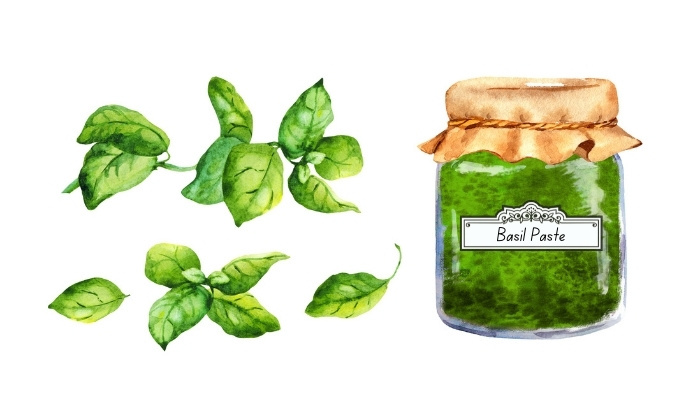If you live in an area with cold temperatures and experience frost or snow, your Thai basil plant will not survive as it is considered a perennial in warmer climate. In order to continue enjoying this highly aromatic herb, the best option is to preserve it. Drying the herb results in a loss of its flavor, therefore, the recommended method is to freeze it. If you encounter any difficulties with completing the rewrite, kindly inform us with the following error message: Unable to process the request due to encountered difficulties.
Can you freeze Thai basil? Thai basil can be successfully frozen and kept in storage for at least a year; however, you will lose some flavor after about six months. Freezing can be a cost-effective, fast, and healthy way to preserve herbs at home, and it is arguably the best way to enjoy Thai basil year-round.
There are a few different methods to freeze this herb to ensure that it does not deteriorate and retains its wonderful flavor. In this article, you will find our top 6 methods for preserving Thai basil.
How To Freeze Thai Basil – 6 Methods
Our 6 methods listed below cover all the basics for freezing basil. As a general rule, ice-cube trays perform very well as freezer forms. Compostable freezer bags are also a great, environmentally friendly solution.
Does Thai Basil Freeze Well?
Yes, Thai basil, along with many other leafy herbs, is ideally suited for freezing for later consumption. It should be noted, however, that whenever you freeze any food item, especially fresh fruit, vegetables, and herbs, you will lose some of that fresh flavor. It also depends on how well you package your frozen goods and how long you keep them before use.
How Long Is Frozen Basil Good For?
Technically speaking, frozen herbs have an indefinite use-by date, provided they stay below 0 degrees Fahrenheit. How long frozen basil is good for, however, is another story. Usually, frozen herbs tend to be best consumed in three to six months.
This being said, I have found frozen herbs in my own freezer that have been well over a year in storage, and to my surprise, they still provided a wonderful aroma and taste to dishes.
1. Freeze in Olive Oil
Olive oil is a natural preservative as it creates a viscous protective layer around whatever you are trying to preserve. Olive oil also helps to keep freezer burn away from your produce and imparts a great taste. This method does fall short in some ways because it means that to any dish you add your basil, you will also add oil.
2. Freeze in Water
Freezing basil in water is one of the best ways to preserve this herb. This is because it can be easily portioned, and, once frozen, placed into larger bags without worrying about losing your portion sizes or a sticky, oily mess. The absence of any oils also makes it more versatile for use.
3. Make Pesto and Freeze
While freezing in water or oil is a good method for a variety of cooking, sometimes it is nice to spice things up and retrieve that pre-made Thai basil pesto ready to go. Simply find any delicious, healthy recipe you desire, like one of these, then portion in an ice-cube tray, and freeze.
You can also divide your pesto in individual portions in freezer bags. To thaw, simply place the sealed pesto into hot water, or let it thaw in your refrigerator for around four hours.
4. Freeze as Basil Paste

This method is quite similar to our oil method, but it uses less oil for a more intense and flavorful end product. Simply using a knife and chopping board, finely chop the leaves as well as stems if desired, and then stir with a little olive oil to make a paste. This paste can be frozen in ice-cube trays or freezer bags.
5. Blanch Before Freezing
Blanching vegetables, fruits, and herbs before freezing provides a few key benefits. Mainly, blanching helps to maintain color, flavor, and texture, and it also helps to slow enzyme action, which means more nutrients for longer.
To blanch Thai basil before freezing, simply bring a large pot to a boil, add your basil for around 10 seconds, and then remove and place into an ice bath to stop the leaves from overcooking. As a general rule, you will want to use 1 gallon of water for every pound of green matter.
6. Freeze Individual Leaves
For the simplest and most hassle-free method of freezing Thai basil, simply snip leaves from their stems, wrap in paper towels, and freeze. This is a good way to preserve basil for shorter periods.
How To Use Frozen Basil
Frozen basil can be used in almost as many dishes as fresh basil, and even salads can be spruced up with the addition of thawed basil pesto. For most pot dishes such as soups, sauces, and casseroles, herb portions can simply be added directly with other ingredients and warmed to thaw. Excess water will be cooked off, and oil from portions can give dishes an extra dimension of flavor depth and creaminess.
For those with high-powered blenders, basil frozen in oil can also be used almost immediately for dressings simply by blending portions, pouring into jars, and shaking until thawed.
How To Store Thai Basil
There are many freezer bags available online, and for those with a serious amount of herbs to preserve, it is a good investment to purchase a vacuum sealer. These electric sealers can be bought new or picked up cheaply second-hand. There are a few companies that specialize in compostable storage bags, which is a great way to reduce plastic waste.
Can You Dry Thai Basil?
Drying Thai basil is a good choice for those wanting to make homemade teas as dried herbs have an excellent shelf life without the use of a freezer. You may also use dried Thai basil for cooking just like you would regular sweet basil — but remember that the flavor of frozen basil makes a noticeable difference and is the tastier of the two options.
Related Questions:
What Is Thai Basil Good For?
Just as with most herbs, Thai basil is a powerhouse of nutrients and antioxidants that are all vital for a healthy body and for feeling great. Thai basil is also used to help the body recover from coughs, headaches, and common colds. As a tea, Thai basil may also be helpful in aiding digestion.
Is Thai Basil the Same as Holy Basil?
Thai basil and holy basil are closely related to one another and are both found in many parts of Asia. They do look a little different; however, their taste is what really sets them apart. While Thai basil has strong licorice and aniseed notes, holy basil has a more bitter yet fresher taste, similar to peppers or peppermint.
Conclusion
For many of us, storing basil is the only way to enjoy it year-round, but this also means storing it effectively to retain the beautiful aroma and taste that draws us to Thai basil in the first place. Freezing is by far the best way to achieve this, and we hope you have found a method listed that suits your needs.
